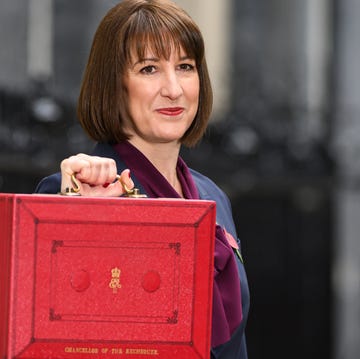If you are struggling to meet your monthly mortgage payments, you are not alone. Thanks to the ongoing squeeze on spending and the rise in interest rates over the last few years, many people are at risk at falling behind with their mortgages.
The Institute for Fiscal Studies (IFS) warned in July that hundreds of thousands of homeowners are to fall into arrears as sustained high interest rates continue to impact family finances.
The Institute said it expects 370,000 homeowners on cheaper mortgage deals to fall behind on household bills once they refinance. After years of low interest rates, which fell down to 0.1% during the pandemic, interest rates have since risen to 5% to battle spiralling inflation.
Many mortgage holders fixed at low rates with two or five-year loans when the Bank first began to raise the cost of borrowing, but as these expire more households are likely to have to refinance at higher rates.
The IFS said: “Those who happened to take out a fixed-rate mortgage product in late 2021 have been comparatively sheltered from the rate rises, while those whose fixed deal ended in 2022 will almost certainly have seen a substantial increase in the amount they must pay.”
The overall picture is, thankfully, far less bleak than it has been over recent years, most notably the financial crisis in 2008/2009. UK Finance’s latest arrears and possessions data released in August 2024 shows a marginal decrease (less than 0.5 per cent) in homeowner mortgages in arrears to 96,070 in Q2 2024, compared with Q1 2024.
While lenders have been cutting rates to match the fall in the Bank of England interest rate, the rise in other costs could mean that people might struggle to keep up with payments. Lenders have been instructed to work with borrowers to make sure that problems keeping up with repayments don't turn into a crisis, and one think which might be worth considering in the short term is a mortgage payment holiday.
What is a mortgage payment holiday?
A mortgage payment holiday is an agreed break with your lender from making your monthly mortgage payments. It can cover a period of anything up to twelve months. If you are temporarily struggling to meet monthly mortgage payments due to a change of circumstances such as redundancy or maternity leave, it may be worth discussing with your lender.
GHI Tip: Talk to your mortgage provider as soon as possible if you are struggling with your mortgage payments, rather than letting the debt spiral out of control.
What’s the benefit of a mortgage payment holiday?
For most of us, the mortgage is the biggest monthly outgoing, so pausing payments is a quick way to improve cashflow in the short-term. But Brian Murphy, Head of Lending at Mortgage Advice Bureau, says: “Ultimately, mortgage payment holidays should only be used by those who need it most, for example, if you’ve been made redundant and are temporarily struggling to meet monthly mortgage payments.”
What are the drawbacks?
- Missing payments, even as part of a mortgage payment holiday, will show up on your credit report and could affect future borrowing.
- You are only deferring the payments rather than not paying them at all, so a pause in your mortgage payments will result in either you paying a higher monthly amount once the holiday is over, or that the length of your mortgage will be extended as a consequence, so it might end six months later than it would otherwise have done.
- This means you are likely to end up paying more interest in the long term because if you are borrowing money for longer, you will be paying interest for longer.
- If you take a mortgage holiday, you may not be able to switch your mortgage to another provider or change rate with your current provider. So, if you’re finding it hard to meet your repayments, shopping around for a cheaper mortgage deal might be a better option, taking into account any early repayment charges which might apply.
How do I qualify for a mortgage payment holiday?
Your lender will give your finances a thorough assessment and you will have to meet certain conditions. But, says Brian Murphy, “these will vary from lender to lender and will depend on your current mortgage contract and financial circumstances.”
Be prepared to share your previous three to six months' worth of bank statements to show that you’re in financial difficulty. "Your lender should discuss with you a tailored support package based on your individual circumstances and is more likely to suggest other options before a mortgage payment holiday, such as increasing your mortgage term or moving to interest-only payments first," says Andrew Johnson, senior money expert at the Money and Pensions Service.
Build financial resilience
If you are worried about finances in general, get free advice at Citizens Advice or Stepchange.org. Use a budget calculator such as MoneyHelper’s tool or Mortgage Advice Bureau budget calculator to help you focus on what money you have coming in and going out and where you could potentially make cuts.
"Think about your money like you do your smartphone battery," says Rob Gardner. “We know exactly what to do when we hit that low 20% battery moment - we shut down the energy draining apps and go into power saving mode. You need to manage your finances in the same way.
Adds Rob: "Start by expecting the unexpected like a sudden change in circumstance, such as the loss of a job, and look at where you can make cutbacks on non-essential expenses to build up your financial resilience over time.”














